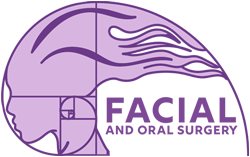
Facial injuries are most commonly caused by motor vehicle accidents, inter-personal assault and sports-related. It can affect the upper jaw, lower jaw, cheek, nose, eye socket or forehead and is regarded as an acute emergency, and treatment is triaged depending on presence of airway problems, extent of head & facial injury, mechanism of injury, and presence of acute signs (eg. Breathing difficulties, persisting bleeding, loss of consciousness/ amnesia, progressive pain despite analgesics, progressive worsening vision, restriction or painful eye movements etc). Facial injuries are treated on the NHS on an emergency basis and surgical outcome is generally best when surgical intervention is performed within 2-3weeks of injury. Many facial injuries are alcohol related and patients often present late which can result in poor surgical outcome.
Facial injuries requiring surgical treatment are not regarded as life or limb-saving surgery hence take a lower priority on emergency theatre lists in the NHS. If you are insured, it is possible to have your surgery done privately, to avoid the NHS waits. Alternatively, if you have a persisting facial deformity following trauma then schedule an appointment for a second opinion.
